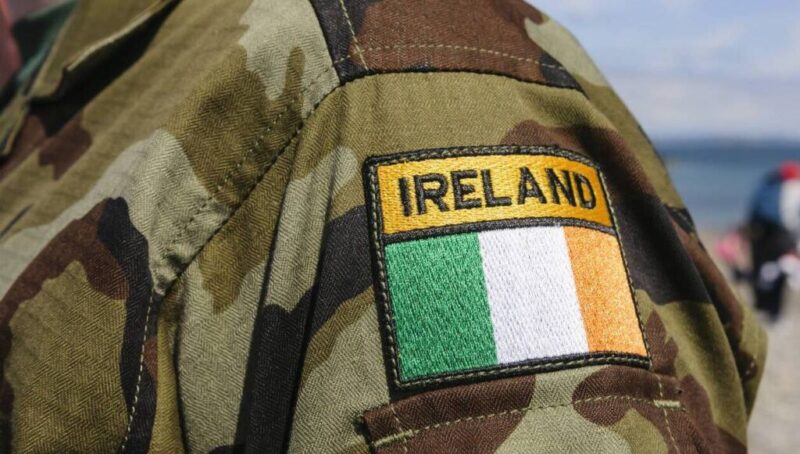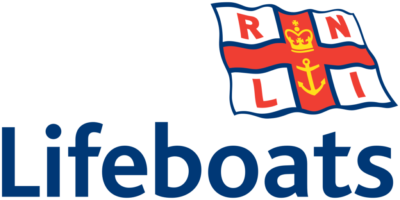NEWS
AND INFORMATION
REMA News & Information
Click the Plus + sign to expand the documents.
-
RETIRED ENLISTED MEMBERS ASSOCIATION
10/2025 Information Bulletin
REMA SUBSCRIPTION COLLECTION ARRANGEMENTS 2026
REMA intends to collect subscriptions from members for 2026 between 1 February 2026 and 1 April 2026. The annual subscription rate is €36.
REMA intends to offer the opportunity to pay subscriptions across 3 different platforms as follows:
Revolut Paypal Bank Transfer
Those subscribing will be asked to ensure that they clearly include their name with any payment to facilitate check-off against the membership database.
Details of the respective REMA accounts will be issued again in late January 2026. Ideally the annual subscription of €36 could be paid over in one €36 payment or across three €12 payments on 1 February 2026, 1 March 2026 or 1 April 2026.
The funds raised will be used to finance REMAs efforts to across a number of important areas
including:
- challenging the abatement of PDF pensions when working in the public service
- Securing the application of sec bargaining pay rises to the pensions of retired pers
- Assisting members to secure cross-border healthcare with assistance from PMAS
- Reviewing the practice of abatement of disability pensions
Issued on 22 December 2025
-
09/2025 Information Bulletin
STATE PENSION (CONTRIBUTORY) AND RELATED BENEFITS
Year 2025 2026
State Pension (Contributory)
Under 80
Personal rate €289.30 €299.30
Inc for qualified adult under 66 €192.70 €199.40
Inc for qualified adult 66 or over €259.40 €268.40
80 or over
Personal rate €299.30 €309.30
Inc for qualified adult under 66 €192.70 €199.40
Inc for qualified adult 66 or over €259.40 €268.40
Notes
The Sate Pension (Contributory) is a weekly payment based on an individual’s social insurance contribution record. It is subject to tax but it is not means tested and will be paid regardless of any additional sources of income. In general qualification is based on the following:
- Aged 66 or over
- Have between 520 and 2080, or more, reckonable contributions (of which 520 must be full-time social insurance (PRSI) contributions. Those with less than 2080 full-rate contributions, may see reduced rates applied. However, in deciding the rate of payment, consideration will also be given to time spent out of work due to unemployment; illness; caring for children aged 12 or under at the time the care was provided; caring for a person who needed an increased level of care or other eligible activities.
The Household Benefits Package (HBP) assists with the cost of electricity or gas bills and also includes a free Television licence. Only one person in a household can claim the Package and you can get it if you are aged 70 or over. You don need to be getting a State Pension (Contributory) and the Package is not means tested.
State Pension (Contributory) holders aged between 66 and 70 qualify for the HBP in certain circumstances.
The Free Travel Scheme, sometimes referred to as Free Travel Pass, is available to everyone who is aged 66 or over and legally living permanently in the State. It allows a holder to travel free of charge on all public transport owned by the State. This includes bus, rail, local link and the Luas with some exceptions.
Issued on 22 December 2025
-
RETIRED ENLISTED MEMBERS ASSOCIATION (REMA)
INFORMATION CIRCULAR NO 08 – 2025
Access to Cross-Border Healthcare to date with PMAS assistance for REMA members
PMAS have been receiving queries from members who retired before the scheme was established. PMAS are pleased to advise that they are now actively assisting REMA members to access treatment under the terms of the Northern Ireland Planned Healthcare Scheme (NIPHS). REMA is open to Enlisted Personnel who retired before the establishment of PMAS and is building a fund to assist members in meeting some of the shortfalls arising after HSE reimbursements.
To date, six REMA members have received assistance. Three have already undergone necessary surgery at discounted rates, one is awaiting a surgery date, and two are currently at consultation stage. All three who have had surgery were refunded by the Health Service Executive (HSE), with only modest shortfalls (surgery cost minus HSE reimbursement). All treatment accessed so far has been orthopaedic in nature, specifically knees and hips.
Whenever REMA members require treatment, PMAS ensures they benefit from the discounted rates and we also manage their applications to the HSE for both prior notification (pre-surgery) and reimbursement (post-surgery).
It should be noted that REMA members are currently required to fund their own initial treatment prior to HSE reimbursement. PMAS will continue to support them by ensuring paperwork is compliant and that any shortfalls are kept to a minimum. ANSAC Credit Union has provided the main initial funding for PDFORRA members utilising PMAS cross-border healthcare services and many REMA members are also members or eligible for membership.
As stated above, REMA is building a fund in conjunction with PMAS for use in the near future to at least make a contribution towards any shortfalls arising from the process in respect of members receiving treatment.
Issued on 22 December 2025
-
REMA, established just over a year ago, aims to protect the interests of retired military personnel.

An organisation representing retired Defence Forces personnel has launched a challenge against the Government over the abatement of pensions applied when former military members take up employment elsewhere in the public service.
The abatement is costing some veterans as much as €10,000 a year, according to Retired Enlisted Members’ Association (REMA) spokesperson Gerry Rooney.
The measure was introduced in 2012 following what he described as a “unilateral decision” made by the Department of Public Expenditure and Reform (DPER) during the recession.
Mr Rooney, a former general secretary of PDFORRA — the association representing 6,500 enlisted Defence Forces members — said REMA has lodged a claim arguing that the abatement was not properly implemented under Defence Forces regulations.
REMA, established just over a year ago, aims to protect the interests of retired military personnel.
The complaint has been submitted to the Department of Defence’s internal dispute resolution process, Mr Rooney said, adding that several individuals have also filed similar complaints.
“In practice, abatement means that soldiers, sailors and aircrew who have retired and earned their pensions see a portion of it abated where they take up employment in a better paid public service job. The practice is unfair, was introduced unilaterally and without consultation,” Mr Rooney said.
“It has had a particularly big impact on retired members of the Permanent Defence Forces (PDF) and is inconsistent with the way TDs, Senators and Ministers are treated. Abatement is not applied at all to politicians,” Mr Rooney said.
He said REMA has engaged with the Department of Defence about the abatement process, which applies to PDF members who joined the public service after 2012.
“REMA has made it clear that abatement was never a part of the Defence Forces pension schemes for enlisted personnel and that they should have been exempted in the same manner as TDs, Senators and Ministers. Moreover, the fact that abatement was introduced unilaterally and without consultation makes it legally questionable and open to challenge,” Mr Rooney said.
He noted that the Pensions Abatement Act 1965 provided for abatement across the public service, but politicians, gardaí and Defence Forces members were excluded.
“Abatement was re-introduced unilaterally and without consultation under Section 52 of the Public Service Pensions (Single Scheme and Other provisions) Act 2012 with only TDs, Senators and Ministers excluded,” Mr Rooney said.
REMA is seeking legal advice on its next steps. Mr Rooney added that if no progress is made through the Department of Defence dispute resolution mechanism, the association and affected individuals will appeal to the Financial Services and Pensions Ombudsman (FSPO).
( Original article in the Irish Examiner, can be found by clicking here. )
-
07/2025 Information Bulletin
NOTICE OF INAUGURAL GENERAL MEETING – THE RETIRED ENLISTED MEMBERS’ ASSOCIATION (REMA)
REMA gives NOTICE that it intends to hold its inaugural annual general meeting in the Ashling Hotel, Parkgate St, Dublin 8 on Saturday 20th September 2025 at 14.00hrs.
The meeting will discuss, hear reports and make plans on a range of matters of importance to retired Enlisted Personnel including:
· Service and disability pensions including the challenge to the abatement of service pensions when taking up public service employment
· The State Pension (Contributory) and any associated benefits – and its integration with the service pension
· Access for retired REMA members to affordable cross-border healthcare under the Northern Ireland Planned Healthcare Scheme (NIPHS)
· Access third party dispute resolution mechanisms in respect of retired members pension arrangement
· The importance of ‘pay parity’ for pension increases under the original pension scheme.
Those planning to attend are asked to express an interest of attendance with REMA through contact with Gerry Rooney on 087-2572551 (Call, text or WhatsApp) or at sgrooney59@gmail.com. It is important that REMA knows the likely attendance as the room has a limit of just over a 100 people.
New members are welcome and applications for membership can be made on the day of the inaugural general meeting.
Issued on 22nd August 2025
-
05/2025
Information BulletinMEETING WITH
DEPARTMENT OF DEFENCE ON PENSION RELATED MATTERS ON WEDNESDAY 23rd JULY 2025APPLICATION OF PAY
INCREASES UNDER THE PUBLIC SERVICE AGREEMENT 2024 – 2026 – INCLUDING LOCAL
BARGAINING ELEMENTA REMA delegation of Gerry Rooney and Mick McKenzie met with the
Department of Defence (DoD), alongside ONE IUNVA and ARCO on Wednesday 23rd
July 2025 in DFHQ, Newbridge. DoD were represented by officials from the
Capability (People), Development and Support Branch.DoD have confirmed that once 1st August 2025 pay increase
under the Public Service Agreement 2024 – 2026 is implemented, that it is the
hope and intention that the 1st August 2025 increase in pay will be
applied to pensions at the end of August. DoD qualified this statement by
pointing out that due to the atypical and unique nature of Defence Force
pensions implementation of increases is complex and challenging. The Public Service Agreement 2024 – 2025
provides for a 1% general round increase in annualized basic salary on 1st
August 2025 and, accordingly, an increase of 1% will be applied to pensions.In relation to the Local Bargaining pay increase under the Public
Service Agreement 2024 – 2026, REMA sought confirmation that the full 3%
increase provided for under the local bargaining clause would be applied to the
pensions of retired Enlisted Personnel. REMA believes that this is in line with
the practice of pay parity ie, in line with, and with effect from, the same
operative date as the relevant pay increase.The DoD position is that nothing has yet been agreed with regard to the
Local Bargaining pay increase due on 1st September 2025. Under
Government policy on pension increases, the benefit of special increases such
as Local Bargaining pay increases, may be applicable to pension, subject to
compliance with certain criteria. Once agreement is reached under the Local
bargaining clause, the details of the relevant arrangements agreed will be
examined to see what, if any, increase will be applied to pensions. It is
REMA’s position that the increases meet that criteria for application to
pensions in full.Further bulletins will be issued as further information becomes
available.Issued on 12th August 2025
-
12/08/2025 - Abatement of Military Service Pensions where retirees take up public service employment
06/2025 Information Bulletin
MEETING WITH DEPARTMENT OF DEFENCE ON PENSION RELATED MATTERS ON WEDNESDAY 23rd JULY 2025
ABATEMENT OF MILITARY SERVICE PENSIONS WHERE RETIREES TAKE UP PUBLIC SERVICE EMPLOYMENT
At a meeting with the Department of Defence the Retired Enlisted Members’ Association (REMA) has challenged manner and fact of the introduction of abatement of service pensions where retirees take up public service employment after leaving the Permanent Defence Force. Such abatement has seen the Enlisted Personnel affected lose a portion of their pay, unable to work fulltime or overtime for fear of losing a portion of their pay or overtime earnings or indeed unable to take up public service employment altogether for fear of losing a portion of pay or earnings.
The unilateral introduction of abatement was not provided for through any of the public service pay agreements, is contrary to the agreed procedures provided for within the DF Conciliation and Arbitration Scheme and also Para 24 of DFR S6, which requires that matters such as pension adjustments should be processed under the conciliation and arbitration scheme. Given the breach of agreements and procedures as well as provisions of the DFR S6, REMA believes that those who have suffered abatement should be identified and refunded any monies actually abated from their service pensions to date.
In addition to the foregoing, it is REMAs position that the long-standing custom and practice was to exempt the PDF (and Garda Siochana and members of the Oireachtas) from the general public service pension rules. This position is supported by the Pensions (Abatement) Act, 1965 under which the service pensions of retired PDF Enlisted Personnel were not abated. Essentially abatement was not part of the pension arrangements of PDF Enlisted Personnel as it was for the civil service and others. The provision of early and immediate retirement benefits is an essential part of the PDF pension schemes. These aspects been recognized for TDs, Senators and Ministers who were initially to have abatement applied but were excluded from the practice following consultations in 2013.
It is REMAs understanding that the Department of Defence manages and administers the DF pensions schemes and are regarded as trustees of the schemes and pensions paid out under them. Accordingly, the DoD should act to protect the best interests of the scheme, its pensions and its members like any responsible trustee. Accordingly, REMA believes that DoD should make representations to the Government seeking the exclusion of Enlisted Personnel from abatement under the Public Service Pensions (Single Scheme and Other Provisions) Act 2012 in light of the custom and practice established by the exclusion of PDF pensioners under the Pensions (Abatement) Act, 1965.
REMA is supporting a number of members who have initiated complaints regarding the abatement of their service pensions through the dispute resolution mechanism.
The DoD was not in a position to respond at the meeting and committed to looking at the case presented by REMA and reverting in the future.
Issued on 12th August 2025
-
04/2025 Information Bulletin
INTERNAL DISPUTE RESOLUTION PROCEDURES DEFENCE FORCE PENSIONS SCHEMES
The Internal Dispute Resolution (IDR) Procedures are intended to give retired and former Enlisted Personnel and the dependents od deceased personnel including actual or potential beneficiaries, a formal avenue to have complaints regarding pension entitlements addressed. Neither the complainant nor the respondent is bound by the findings of the IDR process.
Complaints may be made regarding:
- That financial loss has been caused to a person by maladministration;
- Any dispute of fact or law in relation to any acts done by the administration of the schemes.
The IDR process is a requirement under Article 5 of the Pensions Ombudsman Regulation 2003 (S.I. No 397 of 2003). Accordingly, IDR must be carried out before an individual can bring a complaint to the Financial Service and Pensions Ombudsman (FSPO). More information is available at https://www.fspo.ie/
A number of individuals are now submitting complaints to IDR in respect of the abatement of their service pensions where they have taken up jobs elsewhere in the public service after retiring from the PDF. REMA has provided advice and assistance in relation to these complaints and is available to assist any additional complainants regarding this issue.
REMA intends to raise the matter of the abatement of service pensions where individuals secure jobs elsewhere in the public service after retiring from the PDF with the Department of Defence. It is REMAs position that the abatement of service pensions on securing a job elsewhere in the public service after retiring from the PDF represents a fundamental change to the defence force pensions scheme and are therefore inappropriate. Moreover, such a change to the defence force pensions schemes may interfere with those impacted constitutionally protected property right.
Further updates will be provided on both the individual complaints through IDR and the collective representations to the Department of Defence.
Issued on 29th June 2025
-
03/2025 Information Bulletin
10 REASONS WHY ABATING THE PENSIONS OF ENLISTED PERSONNEL WHO WORK IN THE PUBLIC SERVICE IS WRONG
REMA has identified at 10 reasons why abating the pensions of Enlisted Personnel who work in the Public Service is wrong.
- First and foremost, abatement is inconsistently applied to all state employees. All retired public servants are subject to abatement but Minister’s, TDs and Senators are exempt from having it applied to their pensions. Minister’s, TDs and Senators have good pensions while 99% of other public servants have very modest pensions – including Enlisted Personnel.
- It was introduced as part of the Public Service Pensions (Single Scheme and other Provisions) Act 2012. This was done unilaterally and without consulting those who were impacted by the measure.
- It is a breach of trust because the Government agreed to pay increases, advances and actual payments with PDFORRA and its members on the understanding that such pensions would be paid out in any circumstances.
- Abatement is unfairly discriminating against Enlisted Personnel who take up public service employment after exiting the PDF.
- It is completely contrary to the existing decades long custom and practice which provided for the payment of the pensions of retired PDF when subsequently employed in the public service.
- The abatement of pensions earned is an infringement of constitutionally protected property rights.
- It is unfair to Enlisted Personnel on modest earnings who have paid for their pensions through PRSI to fail to actually receive all or part of their service pension.
- It fails to take account of the all or nothing nature of PDF pensions which normally provide no service pension at all for those completing less than 21 years’ service.
- The ‘Trustees’ of the PDF pension scheme, the Department of Defence, did not act to protect the pensions paid out under the scheme when abatement was introduced.
- The Pension Abatement Act, 1965 was applied to the Civil Service and Local Government but not to Enlisted Personnel.
REMA is committed to persuading the Government and the Minister for Defence that abating the pensions of Enlisted Personnel who work in the public service is wrong.
Issued on 23 June 2025
-
02/2025 Information Bulletin
Pension Council Irish Retirement Living Standards Report
The Pensions Council has issued a report on the Irish Retirement Living Standards, which was prepared and researched by KPMG. The Pensions Council (An Chomhairle Pinsean) is a body which was established under the Pensions Act 1990 to advise the Minister for Social Protection on matters relating to policy on pensions. It is to represent the consumer interest and ensure that the system has a stronger consumer focus.
The report is built around three (3) levels of annual expenditure in respect of retirement pension incomes: ‘modest’, ‘moderate’ and ‘comfortable’. It outlines that a modest retirement income would cover basic living expenses with some room for non-essentials. Under this level a single person would need a pension of €19,200 pa and would rise to €28,800pa for a couple. It exceeds the state pension which is focused on alleviating poverty and setting a very basic standard of living.
The moderate regime goes beyond basic living expenses and offers more flexibility and financial security. It requires a retirement income of €27,600pa for a single person and €37,200pa for a couple. The moderate level reflects a household that has supplementary income or savings beyond the state pension.
The comfortable level of retirement income would provide a single pensioner with an income of €33,600pa and a couple with €43,200pa. The income is said to provide more financial freedom than the moderate level and can afford some luxuries. The associated living standard is not described as affluent and does not cover high cost or extravagant luxuries.
It was noted that the three (3) retirement pension levels are very much averages and will mean different things to different people depending on home ownership or renting status – particularly so in Dublin, healthcare needs and transport costs. The figures for the report are based on a 2024 survey and workshops of Ireland’s over 65s, cross-referenced with publicly available data, and reflects the cost of living in 2024.
REMA is conscious that the pension profile of its members is generally organised across the modest to moderate range for its pre-2004 pension members, while its post 2004 members are organised around modest pension levels. REMA and its members will be taking these figures into account when deciding on its positions in respect of pensions increase policy and state pension levels, the associated increase policy and integration practice.
Issued on 9 May 2025
-
01/2025 Information Bulletin
Limited Appeals Process for Public Service Spouses’ and Children’s Contributory Pension Schemes
The original ‘widows and orphans’ contributory pension schemes were introduced from the mid-1970s (1978 for PDF) and were initially optional and only open to male employees. By the mid-1980s (1985 for PDF) the schemes were revised had opened to male and female employees and were compulsory – though existing serving employees were generally given the option to join.
The main difference between the original schemes and the revised schemes is that while the original schemes restrict the classes of beneficiaries to spouses and children of marriages and civil partnerships that take place during scheme membership, the revised schemes were extended to include spouses/civil partners of post retirement marriages and civil partnerships, children conceived or adopted on retirement, and children of non-marital relationships.
It was a matter for employees and management to agree the introduction of the spouses and children’s schemes for each public service organisation. Membership was optional for serving staff in recognition of the contributory nature of the schemes and the fact that individual circumstances would determine to what extent, if at all, a member’s spouse, civil partner or dependent would be likely to benefit from the schemes. This approach was agreed with the public service unions. In the case of the Permanent Defence Force (PDF) where no unions or staff associations existed, the measures were introduced without formal consultation or employee involvement. Some serving public servants including PDF Enlisted Personnel exercised the option not to join the original and/or revised schemes when they were introduced – and subsequently sought a new option to join.
The Commission on Public Sector Pensions (CPSP, 2000) did not recommend granting another general membership option on grounds of cost. However, the Commission did recommend that: “…a limited appeals process for spouses’ and children’s scheme membership options be established to examine individual cases and to allow appeals that meet any one of the following criteria:
(i) Where there is no evidence that an option was provided to the individual public servant in the first place:
(ii) Where there is medical evidence to indicate that the person making the decision not to join the scheme was of sufficiently unsound mind not to appreciate the consequences of the his or her decision:
(iii) Where a member of the original scheme declined to join the revised scheme in circumstances where there would have been no reasonably foreseeable adverse financial consequences for the individual (in terms only of his/her scheme contributions) had he\she instead opted to join the revised scheme.
REMA is informed that a number of retired Enlisted Personnel and widow/widowers may NOT have been provided with an option to join the schemes in the circumstances outlined at (i) above of the CPSP 2000 recommendations. REMA will provide assistance in making an appeal where appropriate. Anyone with an interest in this approach or information about the introduction of the S&C schemes in the PDF should contact REMA through the website (rema.ie) by email at website@rema.ie
Please distribute this bulletin widely to retired Enlisted Personnel including widows and widowers.
Issued on 4 March 2025
-
PRESS STATEMENT 15 May 2024
New Organisation to Represent Permanent Defence Force Retired Enlisted Personnel Established – Retired Enlisted Members’ Association
REMA spokesman Gerry Rooney said: “Our first task will be to recruit members to the new association and to organise ourselves in committees and working groups. Given the experience with retired associations representing Prison Officers, Garda and Civil Servants we are expecting to garner around 2,000 members across the Air Corps, Army and Naval Service. This will allow REMA to formally seek consultation rights with the Department of Defence”.
Up to 5,000 have retired from the PDF since 2010 and many have to endure adverse pension arrangements compared to those existing before the financial crash as well as being on their own when dealing with the Department of Defence and Financial Services and Pensions Ombudsman (FSPO)
Gerry Rooney also said: “REMA will also be seeking to engage with the Department of Defence on all aspects of service pensions from providing information and updates on the one hand to seeking changes to them on the other hand. In particular, REMA wants to talk about the abatement of the pre-2013 service pensions that impacts many relatively recent retirees. Its other bread and butter work will include assisting individual retirees with the pension appeals process and where necessary taking cases to the FSPO”.
The full title of the REMA will be the Permanent Defence Force Retired Enlisted Members’ Association with REMA being the working title version. While principally dealing with pensions and related matters, REMA intends to address other issues including support for individuals who need medical procedures and must avail of the Northern Ireland Planned Healthcare Scheme (NIPHS).
ENDS
Further information from: Gerry Rooney – 087-2572551.
-
Circular Number:
Circular 01/2024
Circular Title:
Single Public Service Pension Scheme – Notification of Position on Consumer Price Index (CPI) Uprating of Referable Amounts and Pensions
To:
Public Service Employers (Single Scheme “Relevant Authorities”)
I am directed by the Minister for Public Expenditure NDP Delivery and Reform, following release by the Central Statistics Office (CSO) of the December 2023 CPI results, to notify public service employers (“Relevant Authorities”) in relation to:
- the CPI uprating position regarding referable amounts accrued up to the end of 2022 by members of the Single Public Service Pension Scheme (“Single Scheme”); and
- the CPI uprating position regarding Single Scheme pensions in payment up to the end of 2023.
The relevant CPI change is an increase of 4.6% in the twelve months to December 2023.
Date:
31 January 2024
File Reference:
DPE118-004-2015
Purpose:
To confirm that a CPI-based increase of 4.6% should be applied to referable amounts accrued up to the end of 2022. This increase is to be applied at the end of 2023. A 4.6% CPI-based increase should also be applied to Single Scheme pensions awarded up to the end of 2023. This increase should be applied with effect from 1 January 2024.
Relevant Legislation: Public Service Pensions (Single Scheme and Other Provisions) Act 2012
Applies to: Referable Amounts (including deferred members) up to 31 December 2022
Pensions in Payment with effect from 1 January 2024
Mise le meas,
Deirdre ONeill
Single Scheme Policy and Support Team Work and Pensions Division
Tithe an Rialtais, Sráid Mhuirfean Uacht, Baile Átha Cliath 2, D02 R583
Government Buildings, Upper Merrion Street, Dublin 2, D02 R583 T +353 1 676 7571 www.per.gov.ie
A. CPI Uprating – latest position
- Following release by the Central Statistics Office (CSO) of the December 2023 CPI results, this circular notifies public service employers (“Relevant Authorities”) in relation to:
- the CPI uprating position regarding referable amounts accrued up to the end of 2022 by members of the Single Public Service Pension Scheme (“Single Scheme”); and
- the CPI uprating position regarding Single Scheme pensions in payment up to the end of 2023.
The relevant CPI change is an increase of 4.6% in the twelve months to December 2023.
- A CPI-based increase of 4.6% should be applied to referable amounts accrued up to the end of 2022. This increase is to be applied at the end of 2023. A 4.6% CPI-based increase should also be applied to Single Scheme pensions awarded up to the end of 2023. This increase should be applied with effect from 1 January 2024. Appendix 1 sets out this position in detail.
B. CPI Uprating since Commencement of Single Scheme
- The Single Scheme rules require that referable amounts and pensions be increased by reference to CPI increases.
- Appendix 2 sets out, for reference and in respect of the period since the Single Scheme’s commencement on 1 January 2013, full details of:
- relevant CPI outturns;
- the correct reflection of those CPI outturns in Single Scheme referable amounts (as reported in Annual Benefit Statements); and
- the correct application of those CPI outturns to Single Scheme pensions in payment.
C: Resources, Circulation and Queries
- Resources available in Administrator Toolkits on the Single Scheme website will be updated to reflect (a) the increase in CPI notified in this Circular and (b) the change to the rate of the State Pension (Contributory) in January 2023. These can be accessed under the Employers’ Section of the Single Scheme website at singlepensionscheme.gov.ie
- This circular is a public domain document and can be given to any interested parties. It is, however, primarily intended as a reference document for pensions, payroll and HR personnel in public service workplaces, and Relevant Authorities should make it available to appropriate personnel in these areas. There is no requirement to send it to employees or pensioners.
- Queries about this circular may be pursued as follows:
- Individual public servants with queries should raise them with their Relevant Authority / employer.
- Relevant Authorities / employers wishing to raise queries should send them to singleschemequeries@per.gov.ie, writing “DPER Circular XX/2024” in the subject line.
Appendix 1: Details of latest Single Scheme CPI uprating position
A. Referable Amounts
- Section 40 of the Public Service Pensions (Single Scheme and Other Provisions) Act 2012 (“2012 Act”) provides for the pension referable amounts and retirement lump sum referable amounts of Single Scheme members to be uprated in line with CPI increases. Relevant Authorities are notified that a CPI-based increase of 4.6% on referable amounts accrued to end-2022 is due at end-2023.
- This advice reflects the 4.6% CPI change in the twelve months to December 2023, which is the reference period for CPI-based adjustment of all referable amounts accrued up to end-2022. That means that the appropriate CPI-based increase, due at end-2023, in respect of all referable amounts accrued up to end-2022 is 4.6%.
- Under Single Scheme rules, referable amounts accrued in a given year are not affected by the CPI outturn for that year. This means that the 2023 CPI outturn does not impact on referable amounts accrued in 2023. Annual Benefit Statements issuing in respect of members’ end-2023 position therefore should report referable amounts accrued in 2023 at their original unadjusted values (no change).
B. Pensions in Payment
- Section 40 of the 2012 Act also provides for the pensions of retired Single Scheme members to be uprated in line with CPI increases. Relevant Authorities and other pension-paying authorities are notified that Single Scheme pensions awarded up to the end of 2023 qualify for a CPI-based increase of 4.6% with effect from 1 January 2024. The application of this increase has been decided on by the Minister for Public Expenditure and Reform pursuant to section 40 of the 2012 Act.
Appendix 2: CPI movement to end-2022 as affecting the Single Scheme
- Relevant changes in CPI:
(a) 12 months to December 2014:
-0.3%
(b) 12 months to December 2015:
0.1%
(c) 12 months to December 2016:
0.0%
(d) 12 months to December 2017:
0.4%
(e) 12 months to December 2018:
0.7%
(f) 12 months to December 2019:
1.3%
(g) 12 months to December 2020:
-1.0%
(h) 12 months to December 2021:
5.5%
(i) 12 months to December 2022:
8.2%
(j) 12 months to December 2023:
4.6%
2. CPI impact on Single Scheme Referable Amounts, reflected in Annual Benefit Statements
Statements of end-2013 position:
- Referable amounts accrued in 2013: no increase, since latest full year not subject to adjustment.
Statements of end-2014 position:
- Cumulative referable amounts up to end-2013: no increase, since Single Scheme rules leave referable amounts unchanged when CPI is negative (CPI outturn 1(a) above).
- Referable amounts accrued in 2014: no increase, since latest full year not subject to adjustment.
Statements of end-2015 position:
- Cumulative referable amounts up to end-2014: 1% increase (CPI outturn 1(b) above).
- Referable amounts accrued in 2015: no increase, since latest full year not subject to adjustment.
Statements of end-2016 position:
- Cumulative referable amounts to end-2015: no increase (CPI outturn 1(c) above).
- Referable amounts accrued in 2016: no increase, since latest full year not subject to adjustment.
Statements of end-2017 position:
- Cumulative referable amounts to end-2016: 4% increase (CPI outturn 1(d) above).
- Referable amounts accrued in 2017: no increase, since latest full year not subject to adjustment.
Statements of end-2018 position:
- Cumulative referable amounts to end-2017: 7% increase (CPI outturn 1(e) above).
- Referable amounts accrued in 2018: no increase, since latest full year not subject to adjustment.
Statements of end-2019 position:
- Cumulative referable amounts to end-2018: 3% increase (CPI outturn 1(f) above).
- Referable amounts accrued in 2019: no increase, since latest full year not subject to adjustment.
Statements of end-2020 position:
- Cumulative referable amounts to end-2019: no increase (CPI outturn 1(g) above).
- Referable amounts accrued in 2020: no increase, since latest full year not subject to adjustment.
Statements of end-2021 position:
- Cumulative referable amounts to end-2020: 5% increase (CPI outturn 1(h) above).
- Referable amounts accrued in 2021: no increase, since latest full year not subject to adjustment.
Statements of end-2022 position:
- Cumulative referable amounts to end-2021: 2% increase (CPI outturn 1(i) above).
- Referable amounts accrued in 2022: no increase, since latest full year not subject to adjustment.
Statements of end-2023 position:
- Cumulative referable amounts to end-2022: 6% increase (CPI outturn 1(j) above).
- Referable amounts accrued in 2023: no increase, since latest full year not subject to adjustment.
3. CPI impact on Single Scheme Pensions in Payment
Pensions in payment at end-2015:
- Increase by 0.1% on 1 January 2016 (CPI outturn 1(b) above).
Pensions in payment at end-2016:
- No change due on 1 January 2017 (CPI outturn 1(c) above).
Pensions in payment at end-2017:
- Increase by 0.4% on 1 January 2018 (CPI outturn 1(d) above).
Pensions in payment at end-2018:
- Increase by 0.7% on 1 January 2019 (CPI outturn 1(e) above).
Pensions in payment at end-2019:
- Increase by 1.3% on 1 January 2020 (CPI outturn 1(f) above).
Pensions in payment at end-2020:
- No change due on 1 January 2021 (CPI outturn 1(g) above).
Pensions in payment at end-2021:
- Increase by 5.5% on 1 January 2022 (CPI outturn 1(h) above).
Pensions in payment at end-2022:
- Increase by 8.2% on 1 January 2023 (CPI outturn 1(i) above).
Pensions in payment at end-2023:
- Increase by 4.6% on 1 January 2024 (CPI outturn 1(j) above).
R.E.M.A.
Established to represent PDF Enlisted
Personnel on Pensions & Related Matters.
PMAS
Supporting Injured PDForra Members
Offering our members the best in Private
Health Care.
PDFORRA
Working on behalf of all
all our members.
DEFENCE FORCES
We are proud to represent our
retired enlisted members.
ANSAC
Working with serving
& retired Enlisted Personnel.









